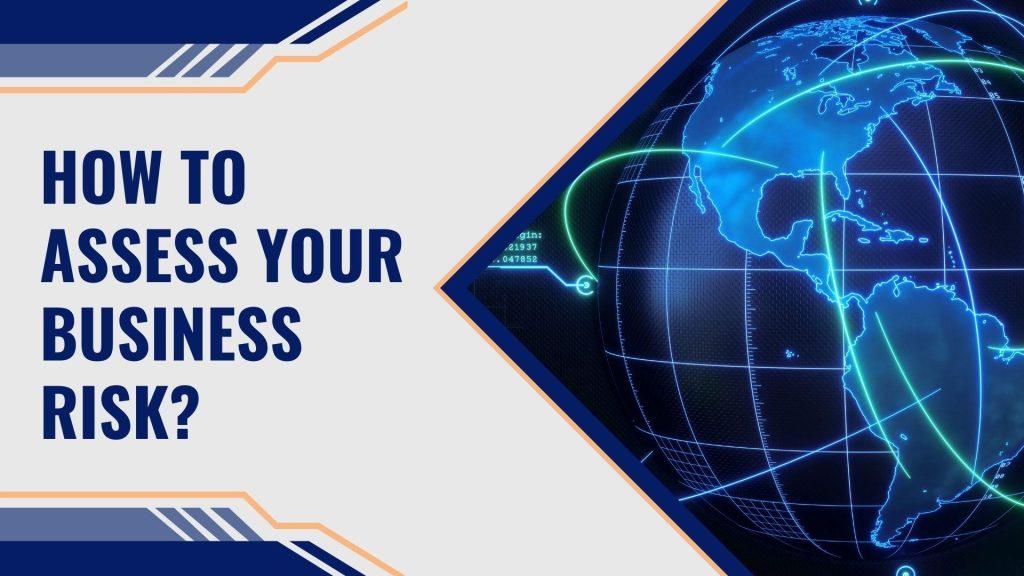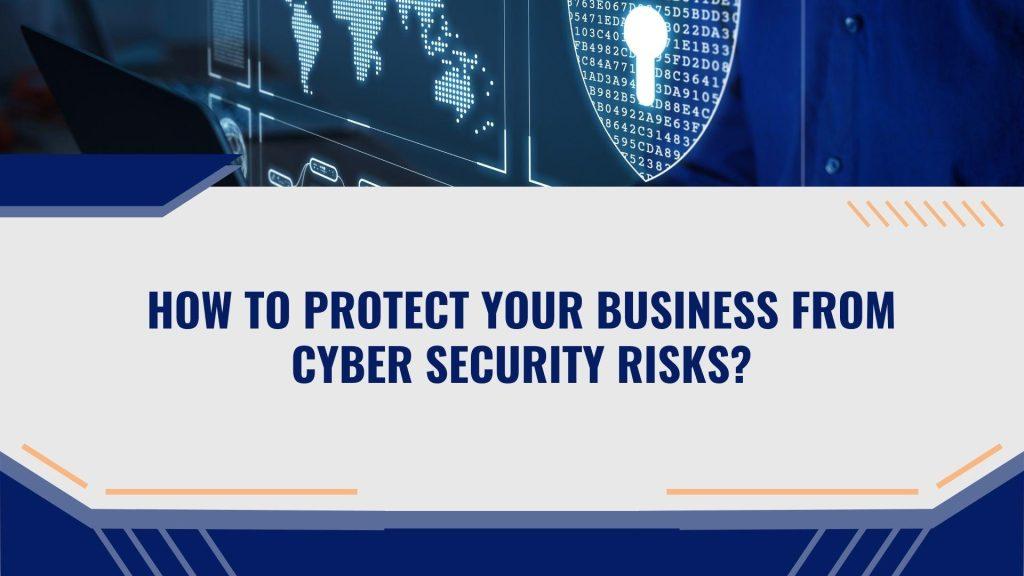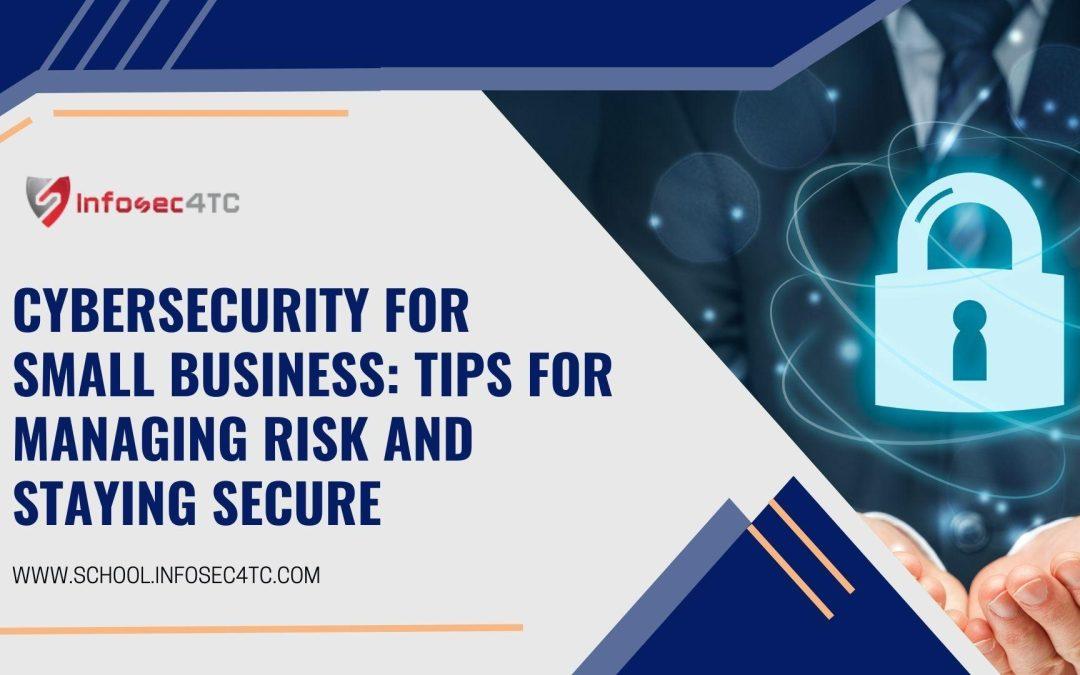A business must protect the information from loss, theft, and damage; non-compliance can result in fines and penalties. While larger companies have the resources to deal with cybersecurity concerns, small businesses often do not. Typically, a business owner or their immediate family members perform many roles within the small business. Due to a lack of information technology skills and the resources to hire those skills, many small businesses are at great risk of having their systems compromised.
Why Do Hackers Target Small Businesses?
Cybercriminals are increasingly targeting small and medium-sized businesses (SMBs) because they are perceived to have the weakest defenses. There are many reasons why cyber-attacks on small businesses can occur. Here are a few of them:
- SMBs don’t believe they will be targeted and are unprepared.
- Outdated systems or needing more security protocols and training can make infiltrating them easier.
- Cybercriminals are after the personal information that small businesses have.
- They use SMEs to get to bigger businesses. They try to access servers through stolen credentials from a small third-party vendor. Once they have access to the vendor’s servers, they can use this as a stepping stone to gain access to larger businesses that the vendor may have a relationship with
How To Assess Your Business Risk?

The initial step is to evaluate your existing security systems to assess the risk associated with your business. It involves creating an inventory list of all your assets, including hardware and software, and identifying where data is stored and who has access. It is essential to keep this information in a secure location and restrict access to it. Additionally, evaluating your current security systems can help identify any potential vulnerabilities. By conducting a thorough business risk assessment, you can proactively enhance your business’s security and safeguard it against potential threats.
Gain realistic cyber security experience with InfoSec4TC’s training program and protect your small business. Our hands-on courses will help you understand and respond to potential cyber threats, safeguard your assets, and protect your organization
Top Cybersecurity Threats to Small Business
To protect your business, you must be aware of the most common cybersecurity threats and take appropriate measures to mitigate them. Here are the cybersecurity threats that small businesses should know about:
Phishing Attacks
In a phishing attack, fraudulent emails or messages are sent to trick recipients into disclosing sensitive information, such as credentials or financial information. The emails often appear to come from reputable sources, making identifying them maliciously difficult. To avoid falling victim to phishing attacks, educate your employees on recognizing and reporting suspicious emails, and implement email filters to block known phishing attempts.
Ransomware
Ransomware (or malicious software) is malware that encrypts a victim’s files and demands payment for the decryption key. Small businesses are often targeted due to their inability to recover from such attacks. To prevent ransomware infections, regularly back up your data, keep your software updated and educate your employees about the dangers of clicking on unknown links or attachments.
Weak Passwords
Weak, reused, or easily-guessable passwords can leave your business vulnerable to unauthorized access. Encourage employees to create strong, unique passwords and use multi-factor authentication (MFA) wherever possible. Implementing a password manager can also help to store and manage passwords securely.
Insider Threats
Insider threats occur when current or former employees, contractors, or business partners misuse their access to your systems to cause harm or steal sensitive data. To mitigate insider threats, limit access to sensitive information to only those who need it, regularly review user accounts and permissions, and implement monitoring tools to detect suspicious activities.
Outdated Software and Hardware
Using outdated software and hardware exposes your business to known vulnerabilities that cybercriminals can exploit. Regularly update your software and replace outdated hardware to protect your systems from known security flaws.
Bring Your Device (BYOD) Policies
Any organization allowing employees to use their devices can increase productivity and expose your business to additional risks. If you adopt a BYOD policy, implement security measures such as requiring devices to have up-to-date antivirus software, encrypting sensitive data, and implementing remote-wipe capabilities in case a device is lost or stolen.
Distributed Denial of Service (DDoS) Attacks
DDoS attacks involve traffic overwhelming your network or website, rendering it temporarily inaccessible. Small businesses can be targeted as part of larger attacks or as a means of extortion. Implement traffic monitoring tools to detect and mitigate attacks and consider using a content delivery network (CDN) to distribute traffic to protect against DDoS attacks.
How To Protect Your Business from Cyber Security Risks? (Best Tips)

Implementing cybersecurity measures is essential to protect your business against cyber threats. In this section, we will explore four important cybersecurity measures that every business should prioritize.
Password Management: Strong password management protects your company’s sensitive information. Weak passwords are an invitation for hackers to gain access to your systems. Employees should be encouraged to create strong, unique passwords and to change them regularly. Passwords should also be kept securely and not shared with others.
Employee Education and Training: Employees can be a weak link in your cybersecurity defense. It is important to educate your employees on the importance of cybersecurity and provide training on identifying and responding to potential cyber threats. It includes educating employees on how to identify phishing emails, how to create strong passwords, and how to report any suspicious activity.
Empower your employees to be an asset in your cybersecurity defense with InfoSec4TC’s Cyber Security Master Certification Training Bundle.
Installing Software Updates: One of the easiest ways for hackers to gain access to your systems is through exploiting vulnerabilities in outdated software. It is important to regularly install software updates and patches to protect against these vulnerabilities. It includes updates for your operating system, antivirus software, and any other software your business uses.
Data Backup and Recovery: Regularly backing up your data is essential to ensure that you can recover from a cyber-attack or other data loss event. It includes backing up all important data, such as customer information, financial records, and other critical files. Backups should be stored in a secure location and tested regularly to ensure that they can be recovered in the event of a data loss.
Conclusion:
Cybersecurity is crucial to any business’s success, regardless of size. Therefore, it is important to note that cybersecurity is an ever-evolving landscape, and staying ahead of the latest threats requires constant vigilance and adaptation. So, stay informed, stay vigilant, and stay secure.

